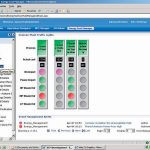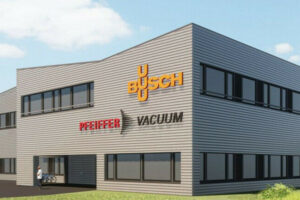Global competition in the chemicals industry is increasingly fierce, which means that companies face new demands to manage costs and improve the efficiency of their operations. AspenOne for Chemicals enables them to reduce overall lifecycle costs by integrating engineering processes with plant operations, sharing common models, data and information.
In response to the challenges of global markets, companies have introduced a range of initiatives designed to promote product innovation, achieve operational excellence, empower their staff and manage their processes using standardised and automated manufacturing practices. For many of these initiatives, information technology (IT) systems play a key role, making real-time information more widely available, and enabling teams to work more effectively together using specialised decision support tools. These industry drivers have led AspenTech to introduce its AspenOne for Chemicals software applications, which are specifically designed to optimise the main business processes with the greatest impact on operational performance. These business processes are addressed by four AspenOne for Chemicals modules:
- Planning & Scheduling
- Advanced Process Control
- Production Management & Execution
- Process Engineering
AspenOne for Chemicals also helps companies increase the value of their existing IT investments – such as DCS and ERP – by integrating them and allowing real-time data to be shared across system boundaries. The systems are integrated using a unified approach, aligned with key industry standards such as ISA S-95. The business benefits associated with the four applications are summarised in the table.
Optimum use of production capacities
AspenOne Planning & Scheduling for Chemicals integrates plant planning and scheduling functions, so that companies are able to reconcile customer satisfaction with inventory levels and manufacturing & distribution costs while generating schedules that maximise asset utilisation on the basis of real plant operating constraints. For olefins producers, Planning & Scheduling for Olefins combines the planning capabilities of Aspen PIMS with the Olefins Scheduler. For polymers, fine chemicals and pharmaceuticals, industry-specific solutions have been developed to facilitate continuous, batch or semi-continuous production. Integration with MES and ERP systems permits real-time detection of events, so that schedules are dynamically re-optimised. The system provides enterprise role-based visibility of all detailed site schedules, customer orders and production execution information. Schedulers can view actual versus planned production according to intermediate or end products from their desktop and immediately understand which adjustments need to be made to optimise production.
The AspenOne Advanced Process Control applications are tailored to suit the different requirements of olefins, polymers and other continuous chemical processes. They enable companies to safely drive process units at maximum throughput at all times, subject to operational constraints. For olefins, the AspenOne application is based on the DMCplus multivariable controller, which has been installed in over 1000 petrochemical plants and refineries worldwide. Other products such as SmartStep and Watch ensure that the controller is simpler to implement and maintain and that the benefits are sustained. The controllers are integrated with model-based, online, real-time optimisation tools to ensure that the plant always operates at its optimum level. The Advanced Process Control for Polymers application utilises the non-linear Apollo controller together with Transition Manager to reduce variability and off-spec production, increase throughput and yield, and enable fully automated transitions between product grades, catalysts and even reactor configurations. Precise inferential sensors additionally minimise the need for laboratory measurement of properties such as melt index and density. For many other continuous chemical processes, a new generation, state-space control technology is used to deliver superior control performance through advanced disturbance handling and an infinite horizon dynamic move plan.
Increased production efficiency
AspenOne Production Management & Execution for Chemicals delivers major performance improvements by managing the execution gap that exists between enterprise resource planning (ERP) systems and the many data sources and control systems on the shop floor. The application enhances operational efficiency from order dispatch through execution to order fulfilment and product release. The solution achieves this through totally paperless operation, 21 CFR11 compliance and comprehensive process data capture and analysis. In addition, it integrates fully with existing company legacy systems. It is designed for continuous, semi-continuous, batch and discrete processes as found in bulk chemical, polymer, fine/speciality chemical and pharmaceutical manufacturing, thereby enabling collaboration and integration across each product value stream. The solution includes a configurable workflow engine that delivers total procedural compliance, encompassing best practices, into interactive Standard Operating Procedures (SOPs) and driving out manual errors. It also includes Aspen Energy Cost Manager, which provides companies with the operational information required to make better decisions about energy usage, operate within targeted ranges, and achieve energy cost savings.
Support for the engineering process
The AspenOne Process Engineering for Chemicals application is based on core products such as the Aspen Plus process simulation and optimisation platform and the Zyqad collaborative engineering environment. It is designed as an integrated system to support the entire engineering lifecycle, from conceptual design to operational improvements. This application combines process design and optimisation with integrated tools for economic evaluation and equipment design and rating, so that the full front-end engineering and design (FEED) process can be carried out efficiently based on consistent data and models. Simulation models created during the design process can then be used offline for plant improvement studies as well as online for real-time optimisation. For example, when production is limited, project engineers can view a model of the plant, identify the bottlenecks that are causing the problem, determine project costs and potential benefits, and generate possible process design changes. Similarly, if feedstock availability varies, plant engineers can view and evaluate the performance of the plant in different feedstock scenarios using a mathematical model of the process to identify the most favourable option. For pharmaceuticals companies, the Process Development for Pharmaceuticals application includes dedicated technologies for product innovation and batch production, streamlining the introduction of new prod-ucts from the laboratory to full scale production.
AspenOne solutions are typically implemented following a value assessment, a systematic methodology that helps companies determine and quantify the best sources of value and prioritise those opportunities that will yield the highest return. This information provides users with an easy way to check the value delivered by the project against expectations and compare it to other alternatives for future projects. Developed specifically for manufacturing operation assessments, the process helps organisations identify the best course of action, so that projects can be implemented quickly and effectively.
Reference installation
Sabic Europe’s site in Gelsenkirchen produces polyethylene and polypropylene. As part of its manufacturing excellence initiative, it has installed a manufacturing execution system (MES) based on AspenTech’s software for Production Management & Execution and Advanced Process Control for Polymers. The MES system is integrated with the company’s ERP system, and has contributed annual cost savings of 12 million euros per year. The APC application has been successfully implemented in its polyethylene plant, delivering reduced process variability, increased throughput and reductions in off-specification material.
cpp 447
More information on aspenOne for Chemicals
Webseminars
Achemasia 2007
Share:








